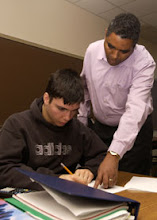Will China ride to the rescue of the Europeans? President Sarkozy lent his support to a proposal encouraging Klaus Regling, the current CEO of the European Financial Stability Facility (EFSF) to make contact with Beijing. Zhu Guangyao, finance minister, and Klaus Regling met. Adopting a wait-n-see posture, China made no commitment to the 1.4 trillion dollar bailout fund.
Financially, the Chinese do have the resources to act. Currently, China is the top creditor to the US, underwriting the federal debt ($14.9 trillion). The Federal Reserve reported China’s holding at $1,137.0 billion, about 25% of total foreign holdings of US Treasury securities at the end of August 2011.
According to Chinese government figures, its foreign exchange (FX) reserves rose from $216 billion in 2001 to $3.2 trillion as of June 2011, and its reserves as a percent of nominal GDP grew from 15.3% in 2001 to 48.4% in 2010. The main contributors to this accumulation are China’s large trade surpluses ($185 billion in 2010), inflows of foreign direct investment into China ($106 billion in 2010) and inflows of “hot money.”
The CRS report China’s Holdings of US Securities (26 September 2011) argues that “China’s central bank is a major purchaser of U.S. financial assets, largely because of its exchange rate policy. In order to limit the appreciation of China’s currency, the renminbi (RMB), against
the dollar, China must purchase U.S. dollars.” This has led China to amass a huge level of foreign exchange (FX) reserves of which analysts estimate the dollar composition to be around 70%.
The report suggests that rather than hold dollars (and other foreign currencies), which earn no interest, the Chinese central government has converted some level of its foreign exchange reserve holdings into U.S. financial securities, including U.S. Treasury securities, U.S. agency debt, U.S. corporate debt, and U.S. equities.
China certainly appears to have the ability to provide a line of credit to Europe but does it have the willingness?
Perhaps, not. The world has historically been less than kind to China, treating China as a second-class citizen. China may choose to hold out for an improvement in the terms of the trade--not economic but rather political. What change(s) might the assumption by China of the role of lender-of-last-resort set in motion?
First and foremost, the chief lender to the world would seek a more level playing field. With the exception of its UN Security Council seat which it had to wrestle from Taiwan, China’s status in most organizations is at odds with its true economic stature.
It has no representation among the Group of Eight (G8), the economic forum of the major world economies. The G8 is currently populated by Canada, France, Germany, Italy, Japan, the United Kingdom and the US with Russia added in 1997. Ironically, in 2010 China surpassed Japan to become the world’s second largest economy and the International Monetary Fund (IMF) projects that the Chinese economy will surpass that of the US in real terms in 2016.
At the International Monetary Fund (IMF), the organization responsible for ensuring exchange rate stability, China holds a 3.55% voting share and the US, a 16.17% voting share.
In the International Development Association (IDA), the organ of the World Bank responsible for providing loans to the poorest countries, China holds 4.4% voting power and the US 15.85%.
China finally gained a seat at the World Trade Organization (WTO) table in December 2001. Since then, China has been a complainant in eight cases involving either the US or the European Union and a respondent in twenty-three cases—seventeen of which were brought by either the US or the European Communities.
China is destine to gain full admission to the Club of the World. China is vast territorially, some 9.5 million square kilometers. China is the most populous nation accounting for nearly 20% of world’s population. China has the second largest world economy. It has a labor force of over 800 million. A study conducted by the Royal Society, the UK’s national science academy predicts that China will overtake the US as the world’s leading producer of research as soon as 2013, returning China to its historic role as a global leader in technology.
Only time will tell whether China will assist the Europeans. But one thing is certain, the time has come for some honest soul-searching about inclusion and cooperation in the decisions affecting the world.
 Kay Strong, Ph.D., Southern Illinois University, M.T., University of Houston, M.A., Ohio University; Associate Professor at Baldwin-Wallace College; Areas of expertise: international economics, contemporary social-economic issues, complexity and futures-based perspectives in economics. E-mail: kstrong@bw.edu
Kay Strong, Ph.D., Southern Illinois University, M.T., University of Houston, M.A., Ohio University; Associate Professor at Baldwin-Wallace College; Areas of expertise: international economics, contemporary social-economic issues, complexity and futures-based perspectives in economics. E-mail: kstrong@bw.edu

No comments:
Post a Comment